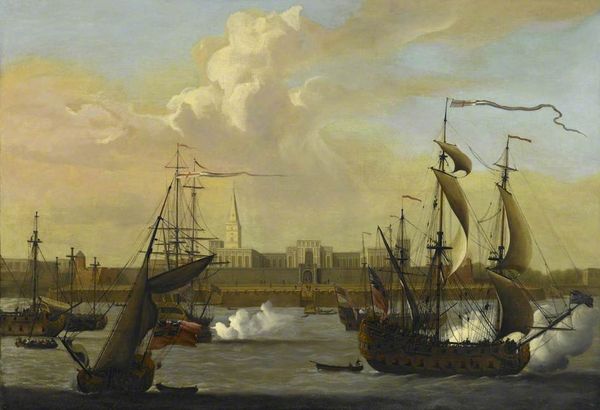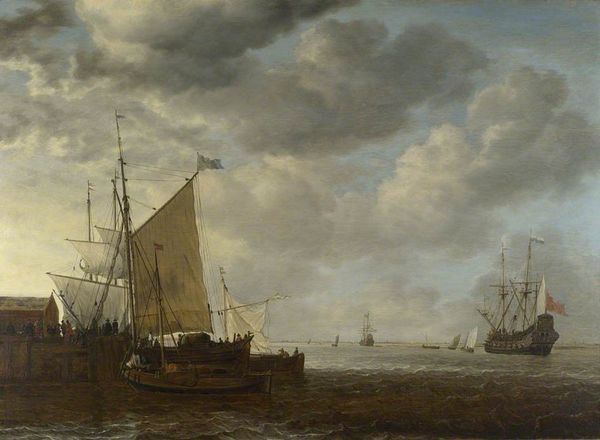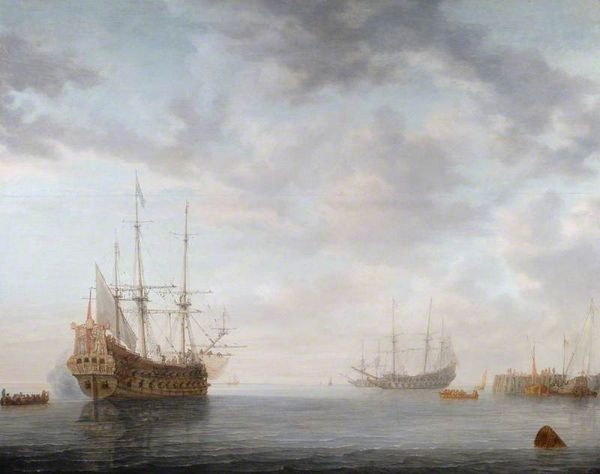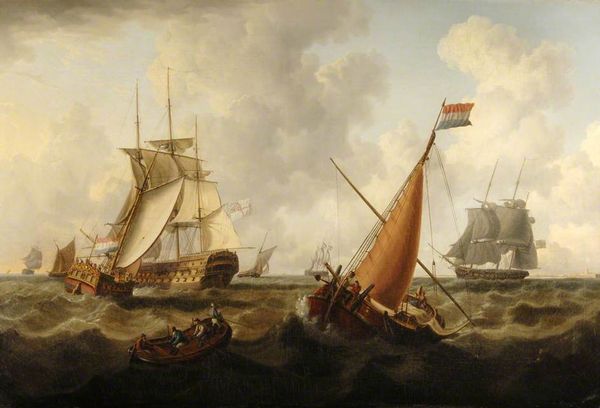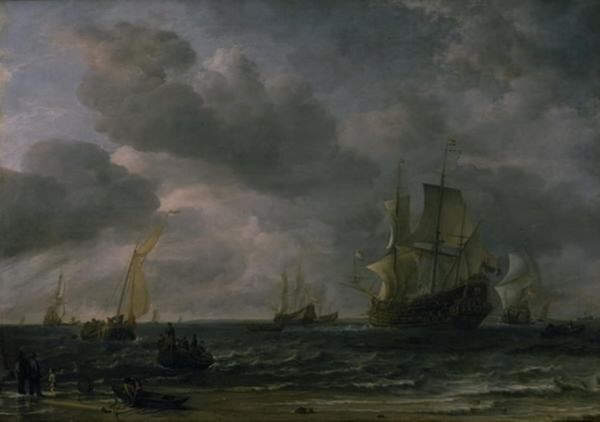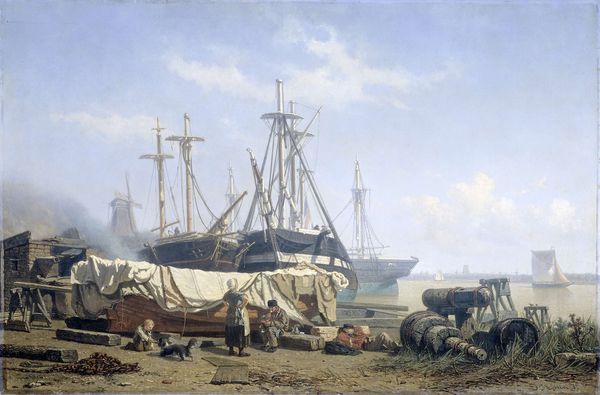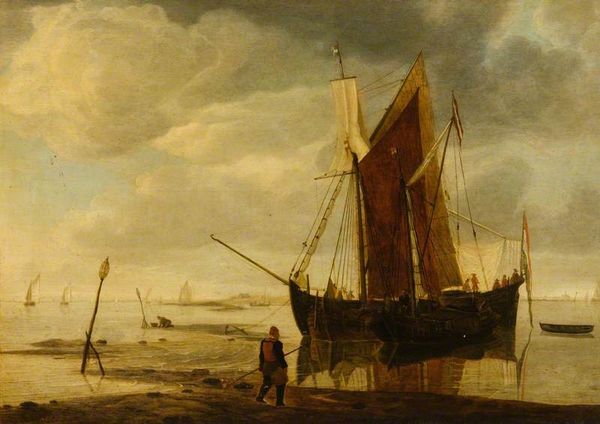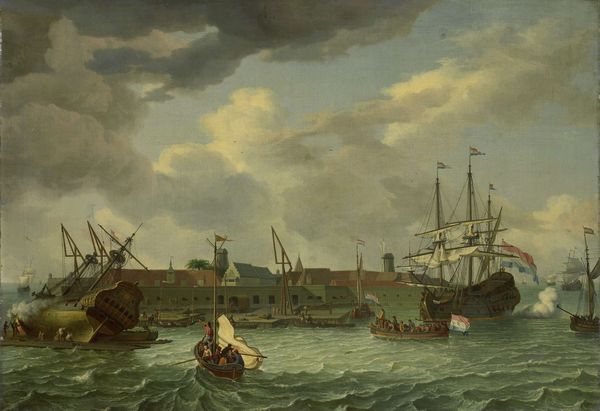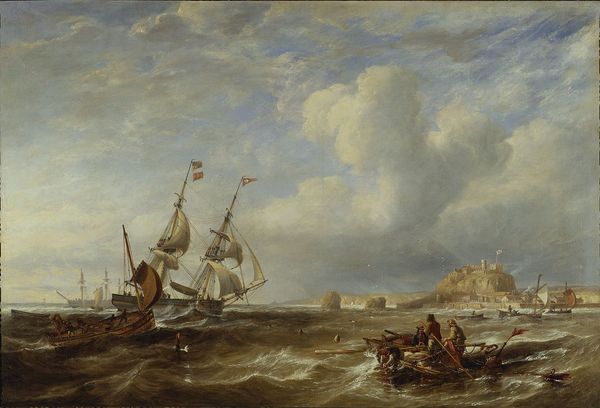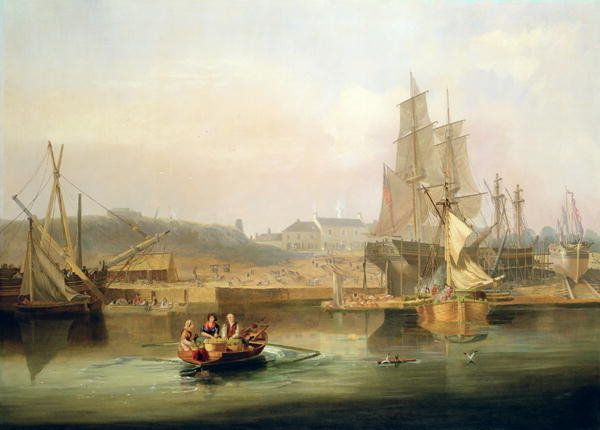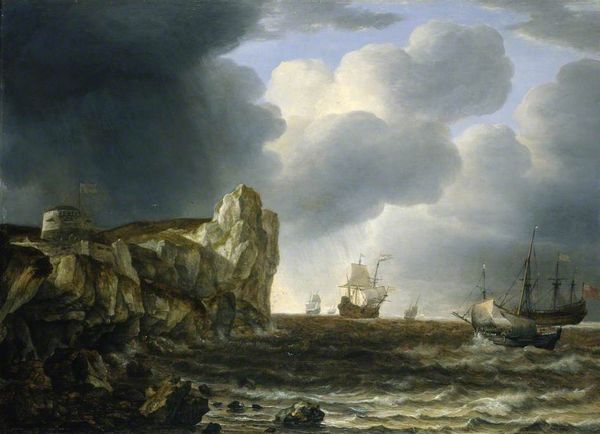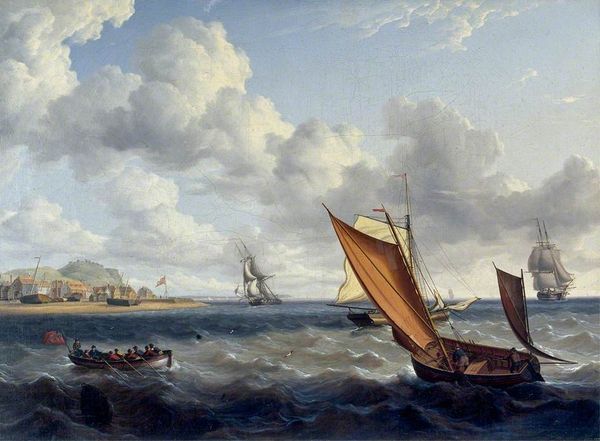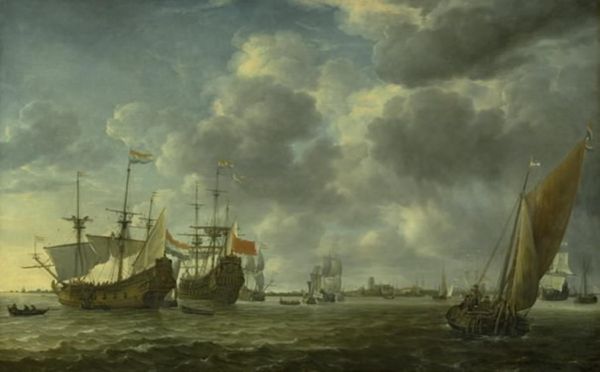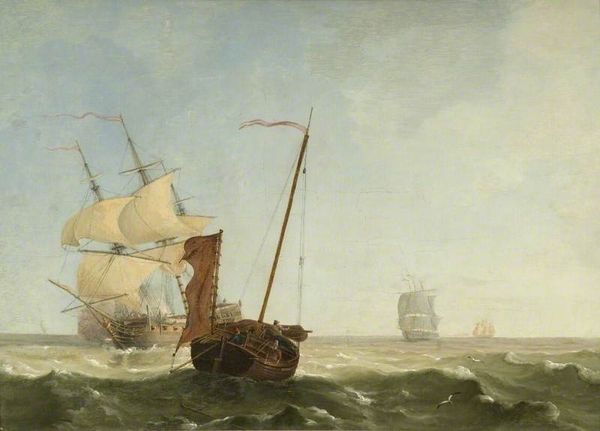
painting, oil-paint
#
sky
#
narrative-art
#
painting
#
oil-paint
#
landscape
#
ukiyo-e
#
perspective
#
romanticism
#
orientalism
#
cityscape
#
history-painting
#
realism
Copyright: Public domain
Curator: Looking at Charles Martin Powell's 1820 oil painting, "A Third-Rate Entering Port Mahon," I'm immediately struck by the depiction of naval power against the backdrop of everyday life. Editor: I see it differently; what grabs me is the immediacy of labor. Look at those small boats and the scale of the vessels in the distance! It emphasizes the physical effort required to navigate this port. I’m interested in how the artist makes the materials visible, not just of the ships, but the stone and coastline. Curator: Indeed. This isn't just a portrait of ships, it reflects Britain's increasing interest in the Mediterranean in the 19th century, part of the Orientalist fascination influencing artistic choices. Editor: Let's talk about the materials, though. The stone quay walls feel so permanent compared to the fleeting nature of the clouds and water. I wonder where it came from. How did the construction influence society? Curator: The way the painting portrays space—how the distant ships and structures appear almost ethereal. It evokes a sense of grand adventure, though maybe filtered through rose-tinted colonial lenses. Think of how these scenes played out for diverse communities, especially people of color. Editor: Good point. But the actual labor needed to build that fort and sail those ships must have shaped social interactions and determined fates, not just inspired artists like Powell. These realities have material consequences, too. It's an empire fueled by human effort and the consumption of materials. Curator: The artist’s subtle layering of light does imbue the scene with a Romantic glow—which complicates this vision. Editor: So many overlooked hands contributed to this portrayal. A more comprehensive view challenges traditional understandings of this painting beyond just "history painting". Curator: Reflecting on this, it's important we consider multiple layers. It prompts discussion regarding artistic and political interpretation of identity at the time. Editor: Absolutely. Focusing on production helps ground such readings, uncovering marginalized stories and hidden histories, that we really ought to remember.
Comments
No comments
Be the first to comment and join the conversation on the ultimate creative platform.
